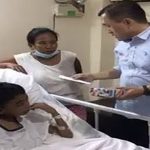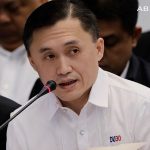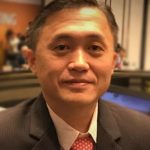SENATOR Christopher “Bong” Go initiated the Malasakit Center which has been at the forefront in assisting Filipinos in dire need of medical support, like Vicente Celespara Jr., a 28-year-old former worker in Japan, now battling end-stage renal disease.
Celespara’s ordeal began unexpectedly with a severe case of acid reflux that led to his hospitalization.
“Bigla lang akong nagkaroon ng acid reflux. Hindi ako makahinga. Kaya nagpasugod na ako sa hospital,” he recounted.
The hospital diagnosed him with critically high creatinine levels, necessitating emergency dialysis. This health crisis abruptly ended his employment abroad, forcing him to return to the Philippines.
Upon his return, Celespara faced escalating health challenges, including the resumption of dialysis by February, depleting his savings.
“Noong time na po ‘yun, lahat ng savings ko nagamit ko na rin. At pag pabalik-balik sa hospital. Kaya wala na rin po talaga akong nakuhanan,” he shared.
Facing mounting medical expenses, he turned to the National Kidney and Transplant Institute (NKTI) in Quezon City.
At NKTI, Celespara received an internal jugular catheter and needed a new fistula, leading to further expenses. It was then that the Malasakit Center in the hospital became his crucial support system.
“Lumapit po ako sa Malasakit (Center)… Sobrang laki ‘yung tulong po talaga ng Malasakit,” he emphasized, expressing profound gratitude for the center’s aid in covering his hospital bills.
Malasakit Centers bring together representatives from the Department of Social Welfare and Development (DSWD), Department of Health (DOH), Philippine Health Insurance Corporation (PhilHealth), and Philippine Charity Sweepstakes Office (PCSO).
These one-stop shops aim to support patients in reducing their hospital costs to the least possible amount.
Go is the principal author and sponsor of Republic Act No. 11463 or the Malasakit Centers Act of 2019, which institutionalized the Malasakit Centers program.
Currently, 159 Malasakit Centers are operational nationwide, poised to assist with patients’ medical expenses. The DOH reports that the Malasakit Center program has already provided aid to around ten million Filipinos.
Celespara’s story underscores the vital role of the Malasakit Centers in providing financial and emotional support to Filipinos grappling with severe health issues. These centers, positioned in various hospitals across the nation, are dedicated to assisting with hospital billing and other medical expenses, embodying a commitment to the well-being of the Filipino people.
Expressing his heartfelt thanks, Celespara said, “Nagpapasalamat po ako kay Senator Bong Go. Lalo na sa pagtatatag ng Malasakit. Sana po ay madami pa kayong matutulungan.”
He encouraged others in similar situations to seek assistance from these centers, ensuring that more Filipinos could benefit from this crucial program.
Go said that his vision for the Malasakit Centers extends beyond providing aid and focuses on the collective efforts of the government to promote compassion and solidarity in times of crisis.
“Lapitan n’yo lang po ang Malasakit Center. Para po ‘yan sa Pilipino,” Go stated, adding: “tutulong ako sa abot ng aking makakaya. ‘Yan po ang pwede kong ialay sa Pilipino. Ang aking serbisyo at pagmamalasakit po sa inyo.”
Aside from Malasakit Centers, Go also principally sponsored and is one of the authors of the Republic Act No. 11959, also known as the Regional Specialty Centers Act, which was signed into law by President Ferdinand “Bongbong” Marcos, Jr. on August 24.
The law mandates the establishment of regional specialty centers within existing DOH regional hospitals which will provide specialized healthcare including renal and transplant care.









